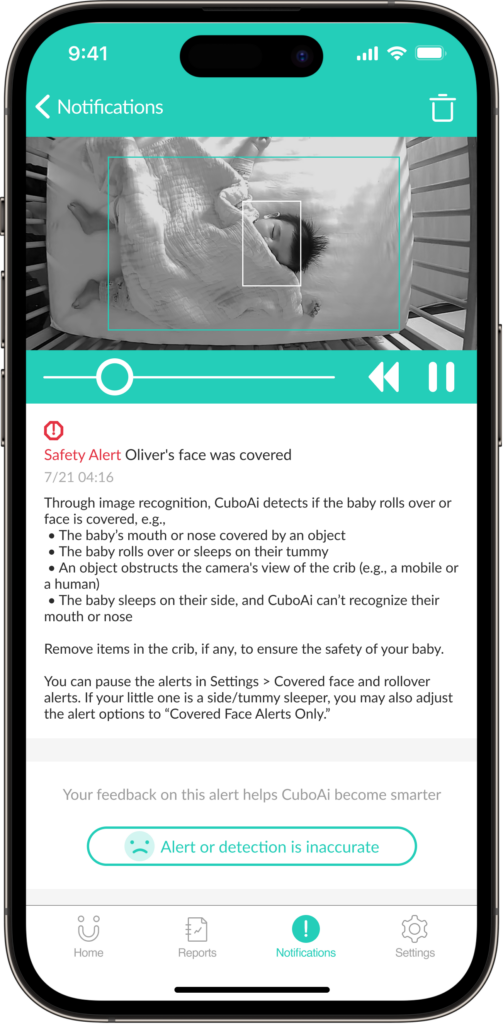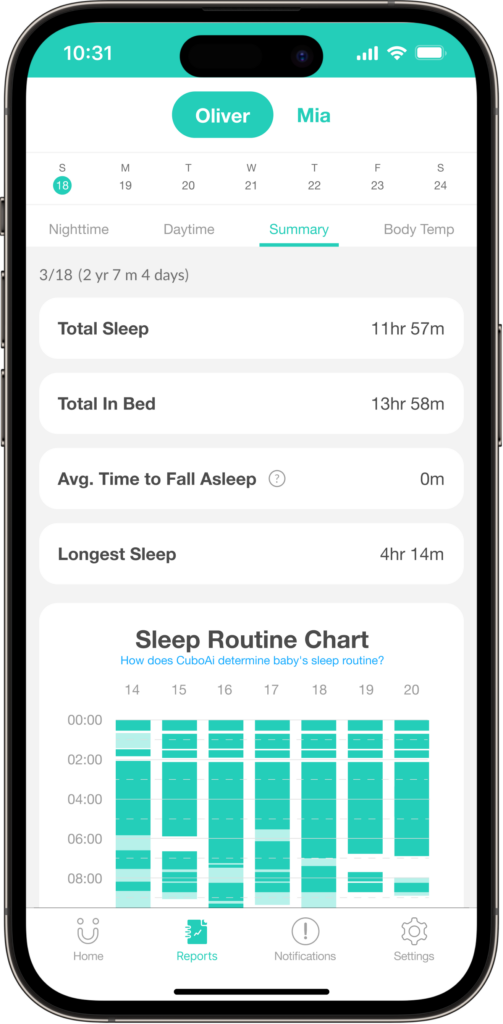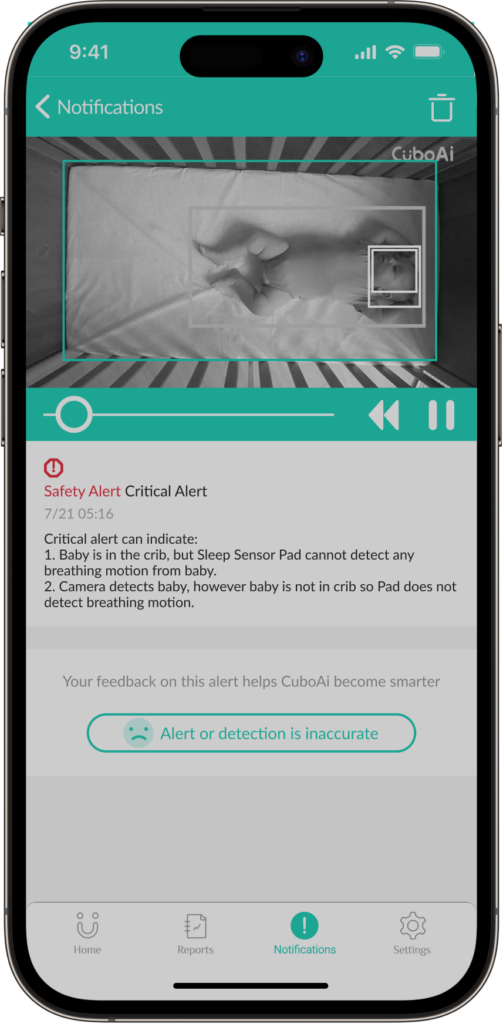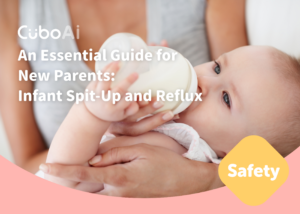Professor Chih-Chien Wang, Department of Pediatrics, Tri-Service General Hospital(Taiwan)
Preface
Isabel, a new mom, has been experiencing sleepless nights since her baby was born two weeks ago. Her baby cries and stays awake at night, while sleeping during the day, leaving Isabel unable to get proper rest at night. The mental strain, coupled with physical exhaustion, has driven her to seek help from a pediatrician to find ways to improve her baby’s sleep.
Another common sleep issue is infant colic. Sara brought her 2-month-old baby to the pediatric emergency room because, for the past three days, her baby has been crying inconsolably in the middle of the night for over 3 hours. No matter how hard she tries to comfort her baby, their crying persists, and their sharp cries can’t be pacified. With deep concerns about whether there is a more serious problem, she seeks help from the emergency room doctor.
In clinical practice, sleep problems in infants and toddlers are common, causing significant distress for parents. These issues can persist from birth through infancy and toddlerhood.
Four Common Infant Sleep Problems:
- How to Resolve Newborn Sleep Disruptions (Achieving Full Night’s Sleep):
Newborns often experience a reversal of their sleep patterns, becoming more awake at night and sleeping during the day. This is one of the most distressing and worrying issues for new mothers, as it can lead to anxiety, irritability, and disruptions in the parent-child relationship, as well as affect breastfeeding. This reversal occurs because the newborn’s brain is not yet fully developed to regulate the day-night cycle effectively.
Improving this situation requires time and patience. First, it’s recommended to keep the room dimly lit and avoid loud noises when your baby is sleeping at night. Speaking to your baby in soft, gentle tones and offering comfort when needed are helpful. During the day, try to keep the environment bright and avoid letting your baby sleep too much. Engage in talking and playing with them or providing appropriate stimulation.
If the reversal of sleep patterns persists, especially when you feel exhausted, it’s crucial to have family members who can help care for your baby. Otherwise, a vicious cycle may develop. When parents are under excessive stress, they often become tense, which can affect their baby as they are very sensitive to their parents’ emotions, resulting in increased crying and fussiness.
However, through changes in caregiving practices and adaptation, these problems can often be resolved quickly.

Figure 1: CuboAi Sleep Report: Daily sleep reports help parents establish Baby’s sleep habits more efficiently.
- How to Solve Infantile Abdominal Colic
Infantile Abdominal Colic often occurs at night, affecting nighttime sleep, which is very distressing for parents. Currently, the exact cause is unknown, but it may be related to factors such as the immature development of the infant’s intestinal function, imbalance in gut flora, food allergies or intolerances, overfeeding, underfeeding, infrequent burping, early forms of childhood migraines, and family stress or anxiety.
Infantile Abdominal Colic can lead to prolonged crying episodes in babies, making them difficult to soothe and put to sleep. It can be defined using a simple rule known as the “333 principle”: crying lasting for more than 3 hours at a time, occurring more than 3 times a week, and persisting for more than 3 weeks. If you’re concerned, it is best to have a pediatrician assess your baby.
Colic usually improves naturally around three to four months after birth, but during this period, some supportive methods can help alleviate discomfort. For example, if breastfeeding, mothers should avoid consuming dairy products, coffee, tea, or gassy foods. For formula-fed babies, parents can consult with a doctor about using hydrolyzed protein formula to reduce gastrointestinal discomfort. It is also essential to avoid overfeeding and prevent your baby from ingesting too much air while feeding.
If your baby continues to cry, gentle massage of the abdomen or burping assistance can help them release gas and reduce abdominal discomfort. Moderate use of a pacifier can also be helpful. Additionally, swaddling the baby in a thin blanket can provide a sense of security and help calm them down.
Some studies have also found that the use of probiotics and iron supplements can improve normal gut flora and alleviate infant colic-related anemia.
- How to Prevent Sudden Infant Death Syndrome (SIDS) Related to Sleep:
Sudden Infant Death Syndrome (SIDS) mostly occurs during infant sleep, primarily due to obstructed airflow, resulting in inadequate oxygen levels in the body. Babies may also be unable to move their bodies, leading to an inability to wake up after falling asleep, ultimately resulting in sudden death. Therefore, providing infants with a conducive sleep environment is crucial for preventing SIDS. Here are some methods to remember and adhere to:
- Avoid prone sleeping (stomach sleeping) positions.
- Avoid bed-sharing with parents.
- Avoid placing unnecessary pillows, blankets, or plush toys on the bed.
- Avoid using excessively soft mattresses.
- Maintain a comfortable room temperature and humidity level.

Figure 2: CuboAi Covered-Face & Rollover Detection: Instantly alerts parents when their baby is in a potentially dangerous situation, helping to prevent accidents.
- Common Issues of Insufficient Sleep Duration and Poor Sleep Quality
A recent research survey conducted by National Taiwan Normal University and the National Science Council found that half of the children aged 1 to 3 in Taiwan tend to sleep late, resulting in insufficient sleep. This is mainly influenced by parents’ late sleep patterns affecting their children’s sleep habits. The Ministry of Health and Welfare recommends that preschool children should sleep for at least 11 hours a day. However, the study found that the rate of insufficient sleep among children increases with age, indicating that parents should adjust their children’s bedtime and prioritize their sleep before attending to their own tasks. Additionally, the increasing use of electronic devices among children, such as tablets or watching TV before bedtime, has been shown to affect sleep quality. Combined with late sleep habits, this can lead to insufficient secretion of growth hormones, which are crucial for growth. This highlights the significant impact of sleep on infants, toddlers, and even school-age children, emphasizing the importance for parents to prioritize sleep.

Figure 3: CuboAi Daily Sleep Summary: Allows observation of a baby’s sleep trends over an extended period.
Two Important Reminders:
- Pay Attention to Sleep Apnea
Sleep apnea occurring during sleep is also a significant concern, affecting about 2% of infants, especially newborns or premature babies. Early detection and providing this information to a doctor can aid in diagnosing any adverse consequences arising from sleep apnea. Left untreated, sleep apnea can lead to various issues, including cardiac, behavioral, learning, and growth problems.

Figure 4: CuboAi Sleep Sensor Pad: Detects Baby’s breathing motion to help parents understand their baby’s breathing during sleep.
- The Hidden Dangers of Infant Crying
Persistent crying during infant sleep often causes parental anxiety, leading to inappropriate caregiving behaviors such as improper shaking or hitting of the baby. This can result in serious consequences known as Shaken Baby Syndrome, which can lead to brain hemorrhage and damage. Therefore, infant sleep crying should not be taken lightly, and efforts should be made to identify the cause and find solutions to avoid endangering the baby.

Figure 5: CuboAi True Cry Detection: Detects a baby’s actual crying sound, sending notifications to parents when their baby cries.
Summary: The Importance of Sleep for Infants and Toddlers
Sleep is crucial for infants and toddlers because their brains are undergoing rapid growth and development. Infants require much more sleep than adults, with newborns needing around 16 to 17 hours of sleep per day—double that of adults. Furthermore, the quality of sleep is equally important, as it allows the brain to recover and develop optimally. Research has shown that adequate sleep duration and good sleep quality significantly aid in language development, motor skills, cognition, and emotional regulation in infants and toddlers.
Sufficient sleep duration and avoiding late bedtimes are essential for normal growth and development in infants and toddlers. Good sleep also contributes to the development of a healthy immune system, reducing the risk of illness. Therefore, it is imperative to understand the importance of sleep to help your little ones establish good sleep habits and ensure an adequate amount of sleep during this critical stage after birth. By doing so, you not only set your children up for success from the start but also ensure their well-being in the long run.





